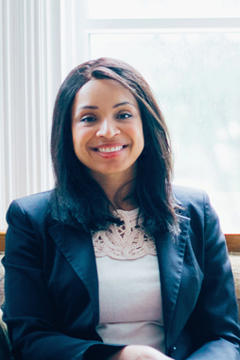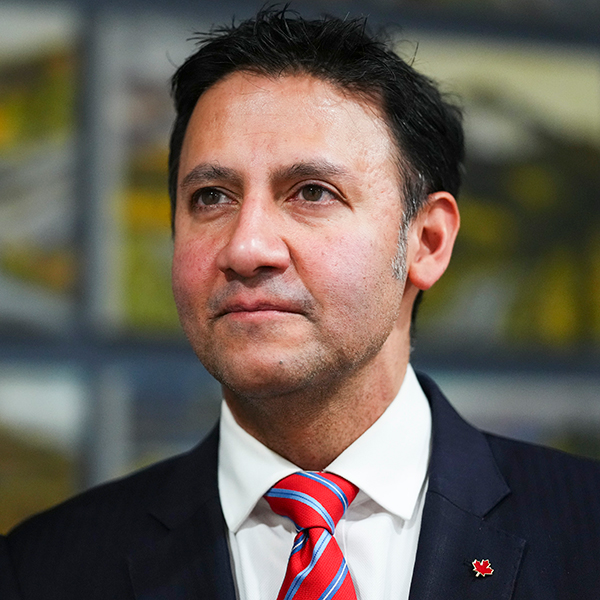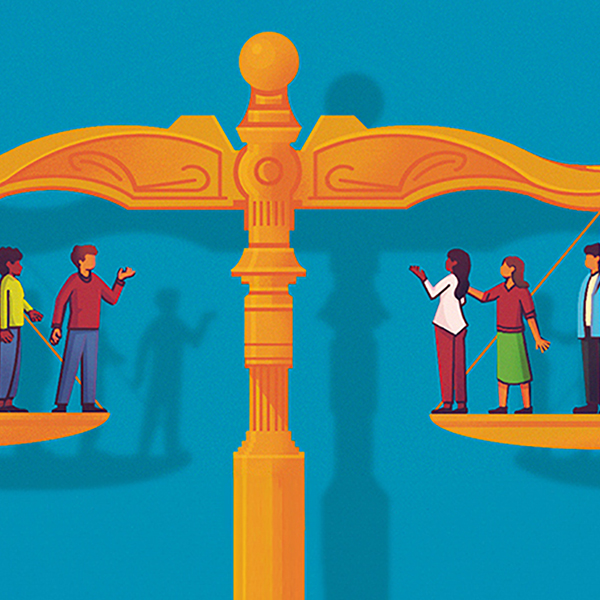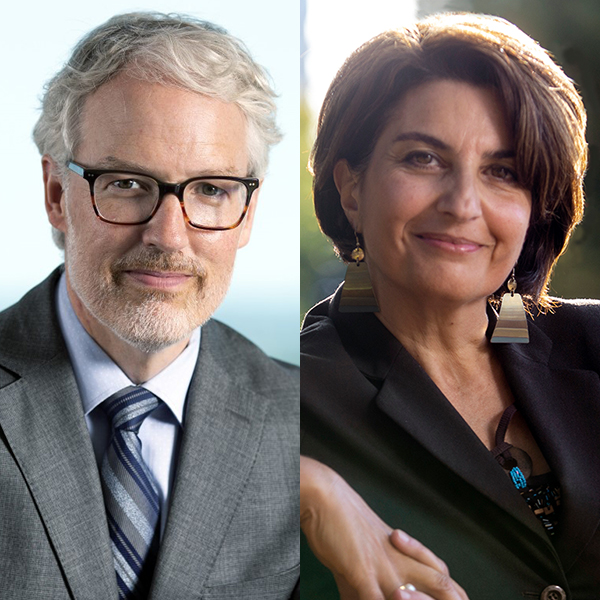When Bill C-45, the Cannabis Act, received royal assent in June, the legalization of marijuana for recreational use was assured. For Toronto lawyer Annamaria Enenajor, BCL/LLB’12, however, the new pot policy is missing a critical element. She has become a leading advocate of amnesty for the half-million Canadians who carry a criminal record for simple possession of the drug.
Enenajor, who specializes in criminal and constitutional law, contends that possession convictions fall disproportionately on minorities such as African-Canadians and Indigenous peoples, acting as a barrier to employment opportunities and foreign travel.
On behalf of the Criminal Lawyers’ Association, she reviewed Bill C-45 and testified before the Senate, urging that an amnesty be included in the legislation. The refusal to do so “was a political decision rather than a decision based on the right thing to do,” says Anenajor. “The Liberals were trying to appease the law-and-order critics of the bill.”

Currently, individuals may apply for expungement of a criminal record five- or 10-years after having served their sentence, depending on whether the offence was summary (something relatively minor like disorderly behaviour) or indictable (more serious cases that often involve jury trials). “A blanket expungement of the records should be the norm,” she says, “but if that’s impossible, a tiered system of expungements would be practical.”
As director of the Campaign for Cannabis Amnesty, she launched a nation-wide petition in favour of the reform. She has been keeping busy making her case in media interviews (The Guardian, Toronto Life, CBC, etc) and at public events (an upcoming The Walrus Talks event in Ottawa, for instance). The campaign recently attracted a $50,000 donation from pot producer Aurora Cannabis Inc.
Enenajor considered a Charter of Rights challenge to spur the Trudeau government into granting amnesty, but concluded that such litigation was unlikely to succeed.
“It’s very difficult to compel a government to implement policy through the courts,” she says. However, Enenajor is hopeful that lobbying Ottawa can produce better, faster results. She has had “positive” discussions with Public Safety Minister Ralph Goodale’s staff. “I believe there is an openness to amnesty, but there’s a question of whether there’s a sense of urgency.”
Enenajor, 34, was born in Slovakia to a Slovak mother and a Nigerian father. The family immigrated to Toronto when Enenajor was age 10. She graduated from McGill’s Faculty of Law in 2011 as the David L. Johnson gold medalist.
“My fondest memory of law school was being challenged by my professors in a very positive and nurturing way. I come from a family that didn’t include any lawyers that I could lean on, so I relied heavily on my professors to help me navigate the legal world.”
She was vice president of the Black Law Students’ Association of McGill and editor-in-chief of the McGill International Journal of Sustainable Development Law and Policy. After graduating, she clerked at the Supreme Court of Canada for Justices Marie Deschamps, LLM’83, and Richard Wagner (now the Chief Justice).
In 2013, she moved to New York City to work as an associate in the litigation group of Ropes & Gray, a global law firm where she had previously interned as a McGill law student. She focused on litigation in regulatory compliance, corruption, and white-collar crime. She also devoted many hours to pro bono practice, representing LGBT asylum-seekers.
She was part of a team of lawyers who brought a civil rights class action against New York City to end excessive force used against inmates at the notorious Rikers Island and other NYC jails. In recognition of her efforts, she received the 2014 Pro Bono Publico Award from the New York Legal Aid Society.
Appalled at the over-representation of racial minorities and the mentally ill in the prison system, Enenajor says it was her experience in New York “that turned me on to criminal law.” In 2015, she moved back to Toronto, starting as an associate under Clayton Ruby and Brian Shiller.
In a mere two years, she made partner and the firm is now named Ruby, Shiller, Enenajor, DiGiuseppe Barristers (in May, Canadian Lawyer ranked the firm among the top 10 criminal law boutiques in Canada).
How did she achieve her rapid promotion? “I really wanted it. I worked my butt off. And I also made a persuasive case for it.” That forceful advocacy is also evident as she wages her campaign to remedy the “historic injustice” of keeping criminal records for pot possession.


